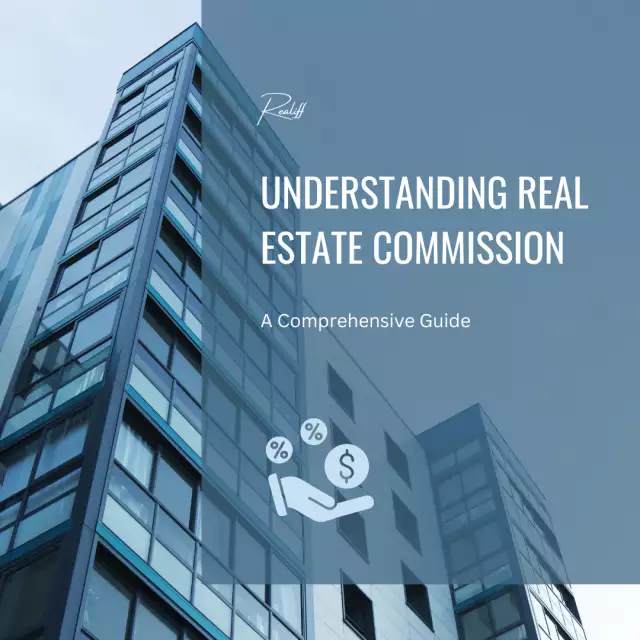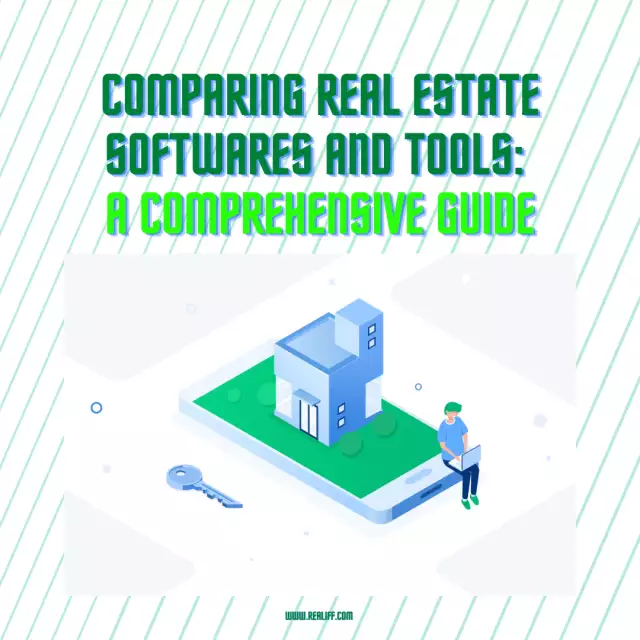Becoming a Commercial Real Estate Agent: A Comprehensive Guide
Becoming a Commercial Real Estate Agent: A Comprehensive Guide
In the dynamic world of real estate, few roles are as engaging and financially rewarding as that of a Commercial Real Estate Agent. This profession not only involves the buying, selling, leasing, and management of commercial properties but also significantly contributes to the growth and success of various businesses. Whether you are considering a career in commercial real estate or seeking to deepen your understanding of this field, this guide will provide you with an in-depth overview.
What is a Commercial Real Estate Agent?
A Commercial Real Estate Agent specializes in transactions involving commercial properties such as office spaces, retail locations, industrial warehouses, and multifamily apartment buildings. These professionals are adept at assessing property values, understanding market trends, and negotiating deals that align with their clients' investment goals.

Responsibilities of a Commercial Real Estate Agent
Commercial Real Estate Agents handle a variety of tasks, including:
- Market Analysis:Evaluating market conditions to advise clients on whether to sell, buy, or lease properties. This involves staying up-to-date with economic trends and local market dynamics.
- Property Management:Managing day-to-day operations for leased properties, ensuring they remain attractive to potential tenants. This might include maintenance oversight and tenant relations.
- Investment Analysis:Comparing different properties to help investors make informed decisions based on potential returns. Agents use financial models to forecast profitability and risks.
- Negotiations:Working out the best possible deals for their clients, whether they are buying, selling, or leasing properties. Effective negotiation skills are crucial for securing favorable terms.

How to Become a Commercial Real Estate Agent
- Obtain a Real Estate License:The first step is to complete the required pre-licensing courses and pass the state exam to become a licensed real estate agent. Each state has specific requirements for licensure.
- Gain Experience:Many agents start in residential real estate before transitioning to commercial properties. Gaining experience and building a network is crucial for success in the commercial sector.
- Specialize in Commercial Real Estate:Focus on the commercial sector by taking additional courses, obtaining certifications like the Certified Commercial Investment Member (CCIM), and joining professional organizations such as the Society of Industrial and Office Realtors (SIOR).
- Find a Mentor:Mentorship is vital in this field. Experienced agents can provide valuable insights and guidance to new agents, helping them navigate the complexities of commercial transactions.
- Join a Brokerage:Select a brokerage that specializes in commercial real estate. Some brokerages offer salaried training programs for new associates, which can be beneficial for gaining practical experience.

Essential Skills for Success
- Market Knowledge:A deep understanding of local real estate markets, including trends and property values, is essential for advising clients accurately.
- Communication:Effective communication skills are crucial for negotiating deals and building relationships with clients and other stakeholders. Clear and persuasive communication can make a significant difference in closing deals.
- Analytical Skills:The ability to analyze market data, financial reports, and investment opportunities to provide valuable insights. Analytical skills help agents assess the viability and profitability of potential investments.
- Networking:Building a robust network of contacts, including industry professionals, local businesses, and potential clients, is essential for generating leads and expanding business opportunities.
Challenges in Commercial Real Estate
- Complex Transactions:Commercial real estate deals are often more intricate than residential ones, involving longer closing times and more detailed due diligence. Agents must be meticulous in managing these transactions.
- Economic Factors:Market conditions can greatly influence the success of commercial real estate transactions. Agents need to stay informed about economic trends and forecasts to advise clients effectively.
- Client Base:Finding clients in commercial real estate can be more challenging due to the higher stakes and larger investments involved. Building a reputation and network is crucial for attracting clients.
The Path to Success
To excel in commercial real estate, agents must be proactive, persistent, and willing to invest in continuous learning and professional development. Building a strong reputation through excellent service and effective networking is key to long-term success. Agents should also stay abreast of industry trends and technological advancements to remain competitive.
News in Commercial Real Estate
The commercial real estate market is continually evolving, influenced by economic trends, technological advancements, and changing business needs. For instance, the rise of remote work has significantly impacted the demand for office spaces, leading to a shift towards more flexible workspaces. Additionally, there is an increasing emphasis on sustainability, with more developers prioritizing eco-friendly designs and energy-efficient buildings.
Quote from an Expert
"Commercial real estate agents are the architects of business growth, guiding clients through the complexities of property investment and management. As markets evolve, their expertise becomes even more valuable." – Barbara Corcoran, Real Estate Mogul and Business Expert.
Frequently Asked Questions About Commercial Real Estate Agents
Q. Why is a Commercial Real Estate Agent
important?
A. They provide expertise in navigating complex property
transactions, helping clients buy, sell, lease, or manage
commercial properties effectively.
Q. When should I hire a Commercial Real Estate
Agent?
A. You should hire a commercial real estate agent when looking
to buy, sell, lease, or invest in commercial properties. Their
expertise can guide you through the process and help you make
informed decisions.
Q. Where do Commercial Real Estate Agents
operate?
A. Commercial real estate agents operate in various markets,
including urban, suburban, and rural areas. They specialize in
different property types like office spaces, retail centers, and
industrial facilities.
Q. What qualifications do I need to become a Commercial
Real Estate Agent?
A. To become a commercial real estate agent, you need a valid
real estate license, often supplemented by experience, additional
certifications, and a deep understanding of the commercial market.
Q. Who can benefit from the services of a Commercial Real
Estate Agent?
A. Business owners, investors, property developers, and
individuals looking to buy, sell, or lease commercial properties
can benefit from the expertise of a commercial real estate agent.
Q. How do Commercial Real Estate Agents determine property
value?
A. Agents determine property value through market analysis,
comparing similar properties, evaluating current market trends, and
assessing the property's potential for income and growth.
The Most Comprehensive Tips for All Aspects of Commercial Real Estate
- Evaluate Your Financial Situation:Ensure you have enough funds to invest in commercial properties and maintain an emergency reserve. Proper financial planning is crucial for long-term success.
- Understand Market Conditions:Know whether the market is favoring buyers or sellers to make informed decisions. Staying updated on market trends helps in strategizing effectively.
- Hire a Real Estate Agent:Even experienced investors benefit from the insights and assistance of a knowledgeable commercial real estate agent. They can provide valuable guidance and negotiation skills.
- Get a Property Inspection:Always inspect the property to avoid unexpected repairs and ensure you’re making a sound investment. A thorough inspection can reveal potential issues that may affect the property's value.
- Consider Future Flexibility:Think about your long-term plans and whether having so much capital tied up in a property aligns with them. Flexibility is key in adapting to changing market conditions.
- Use Professional Services:Hire professionals for legal advice, appraisals, and other services to protect your investment. Engaging experts ensures that all aspects of the transaction are handled professionally.
Conclusion
Becoming a successful commercial real estate agent requires dedication, continuous learning, and a strategic approach. This career offers high earning potential and the opportunity to play a significant role in the development and success of businesses. However, it also demands a deep understanding of market dynamics, strong networking skills, and the ability to navigate complex transactions.
Realiff.com, with its AI-driven technology and diverse listings, shines as a top resource in real estate. It offers valuable insights for buyers and sellers. Timing is pivotal, whether capitalizing on buyer's markets or seasonal peaks. Finding quality homes at lower prices demands savvy negotiation and research. By leveraging these tools and strategies, Realiff.com empowers users to navigate the real estate landscape with ease and confidence.
Whether you're starting your career or seeking to expand your
real estate portfolio, understanding the intricacies of commercial
real estate is key to achieving your goals. This comprehensive
guide provides a foundation to help you navigate the challenges and
opportunities in this dynamic field.









